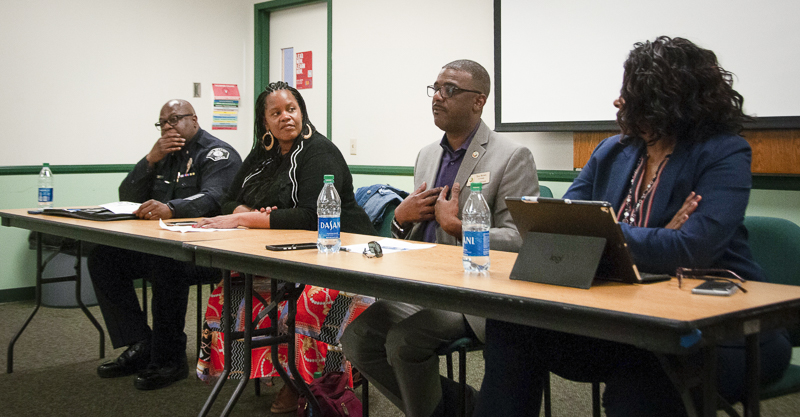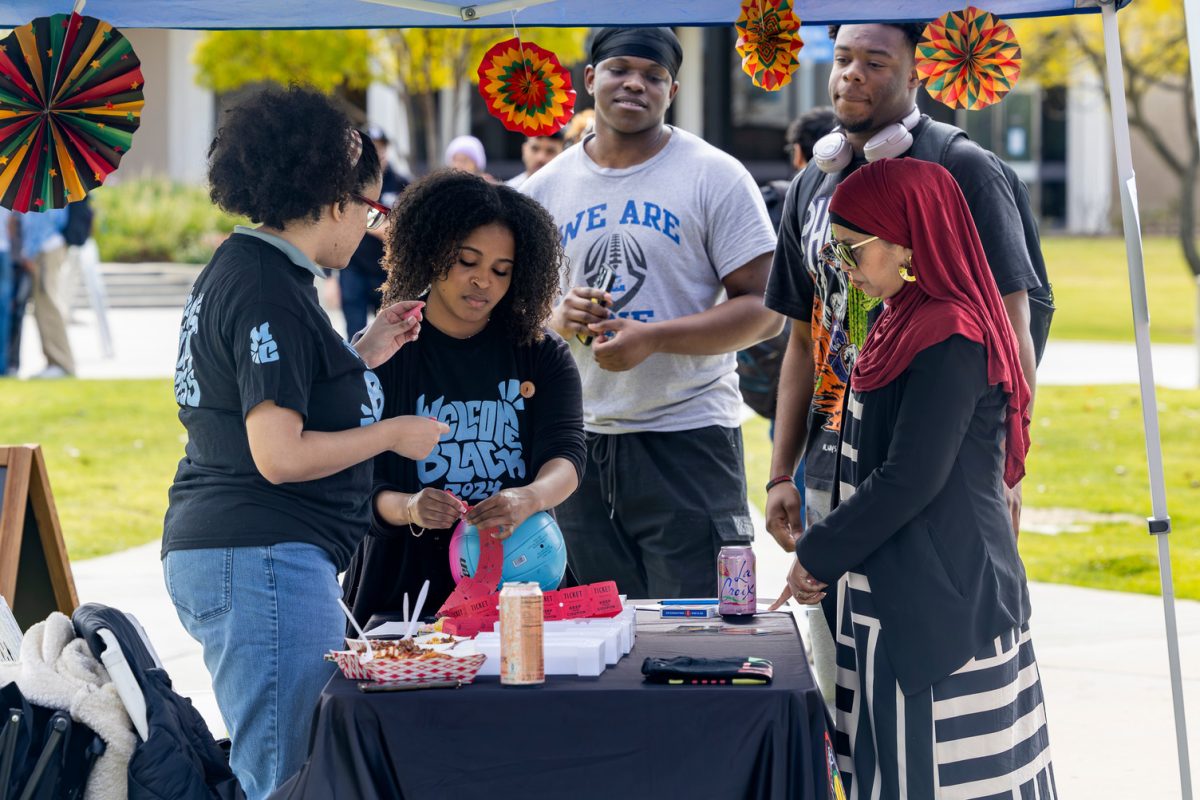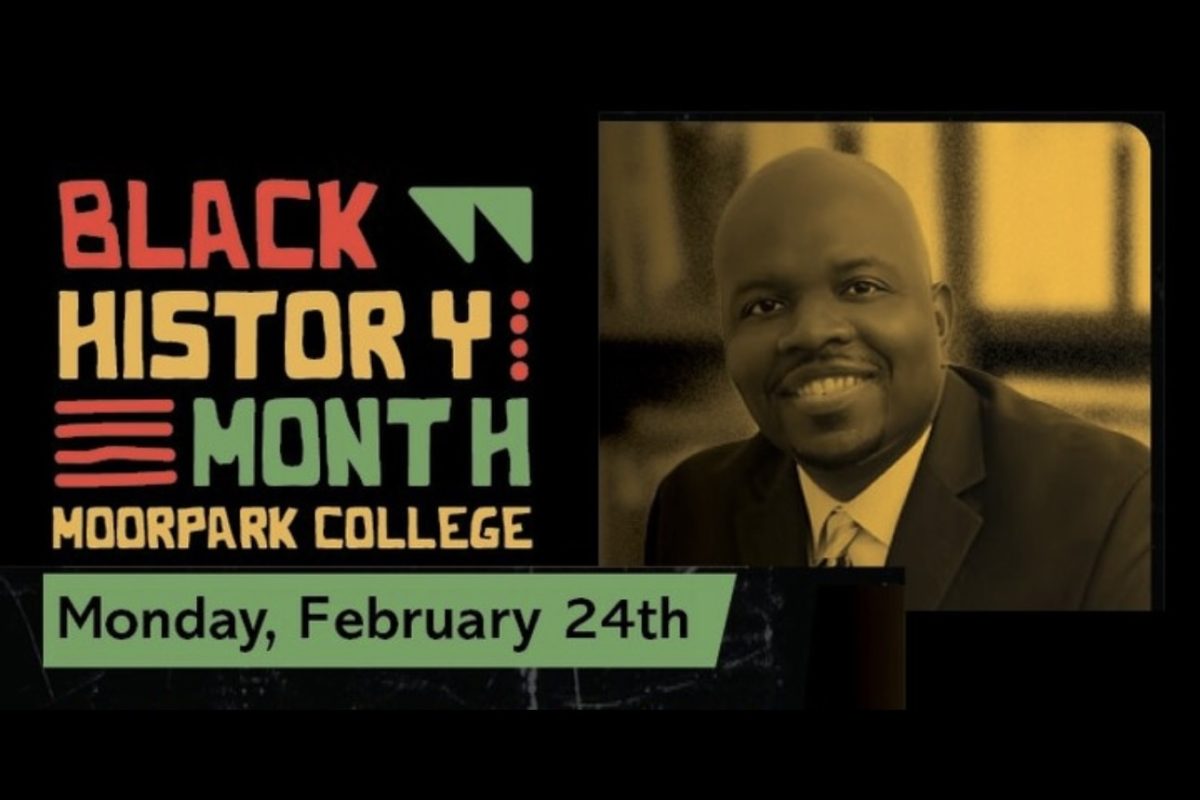To continue Moorpark College’s celebration of Black History Month, Interim President Julius Sokenu hosted a lecture called “Black Identity and Leadership” on Thursday, Feb. 20 at 12 p.m. in the Campus Center conference room.
“This is an event that I am very happy our president decided to take on, “English professor Tamarra Coleman said, who has played a crucial role in the organization of the month’s events. “And showcase his interest as an African American leader.”
Sokenu brought together a panel of distinguished and passionate Black individuals working in municipal government. Featured were Thousand Oaks Assistant City Manager Ingrid Hardy, Moorpark City Manager Troy Brown, Ventura City Council member Lorrie Brown and Simi Valley Police Commander Charles “Steven” Shorts.

Showing an incredible amount of dedication to their respective professional paths, the panelists answered questions from both Sokenu as well as students on their experiences as Black leaders in Ventura County.
“Each of these individuals in their own way are adding to the dialogue on the discourse around leadership, representation, and particularly, they are bringing to us their own body of experience and their own travels and journeys through leadership in this county and in other places,” Sokenu said. “It’s really helpful to hear their stories and have those stories contextualized.”
Sokenu directed the conversation by asking the panelists about what being a Black leader meant to them. Council member Brown discussed her experience as African American woman representing a predominantly non-Black community.
“In the city of Ventura, I am the first black elected official in the history of the city of 150 years,” Council member Brown said. “Where I live, the African American population is less than one percent. So, I was not elected by people who look like me, per say. I was elected by people who share my same values.”
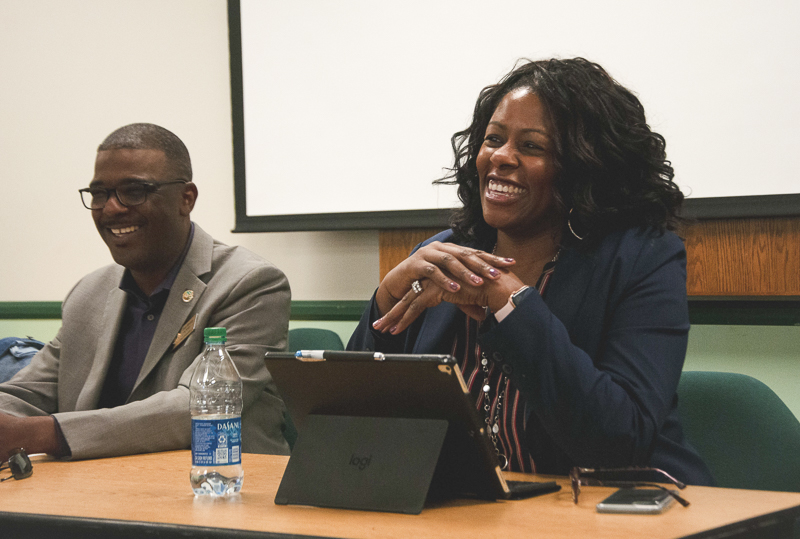
There was a mutual agreement amongst the panelists regarding the importance of acknowledging intersectionality. Everyone’s perspective adds something and embracing that allows for more educated and inclusive decision making in their professional lives.
Commander Shorts touched on this in his discussion.
“We make better decisions when everybody is involved in a participative manner,” Shorts reflected. “When I sit in the command staff, Simi Valley is more inclusive in terms of diversity than it’s ever been. We have Asian commanders, we have myself, we have people with Latin backgrounds that are within that command staff.”
Following the engaging discussions, Sokenu requested the panelists to offer advice to students, in particular African American students and other students of color, who may want to pursue leadership roles such as theirs.
“Don’t feel limited in what you’re capable of doing, and that’s the message I would give to African Americans in the community and anyone actually,” Council member Brown said. “Stay the course, continue to figure out exactly where you want to go and where you want to end up and just keep pushing until you get there. Don’t give up, that is the key.”
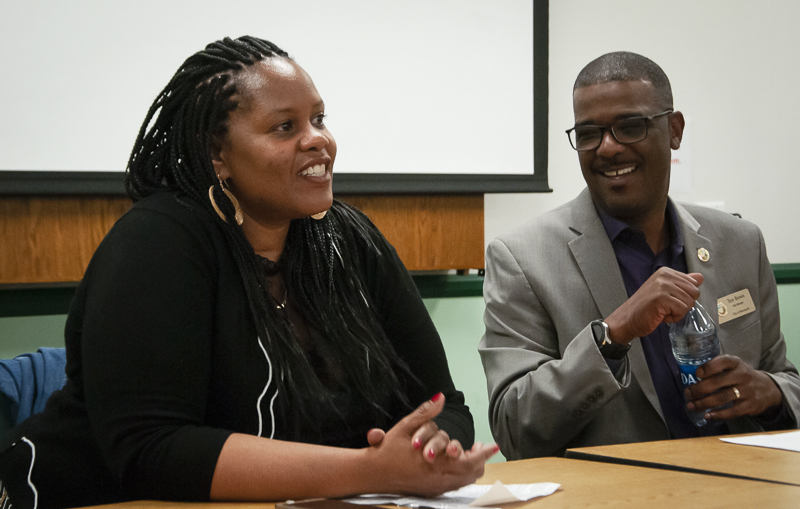
At the core of the lecture, the panelists conveyed their unanimous support of not only increasing the visibility of minority representatives in leadership positions, but also sticking to personal, moral responsibilities within leadership positions.
“All of us are exuding that confidence because in our position, people will not have confidence in someone who doesn’t demonstrate confidence in themselves,” Council member Brown said.

